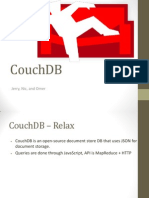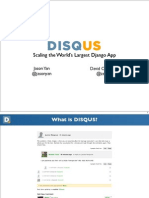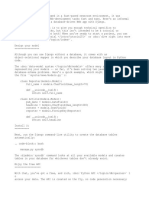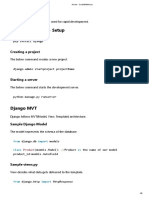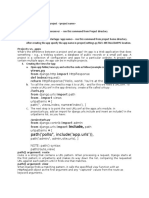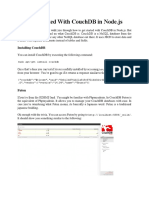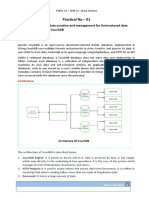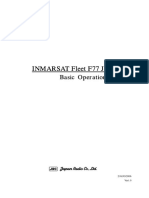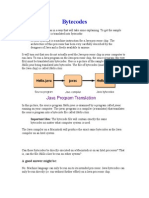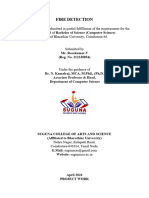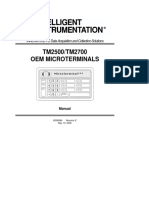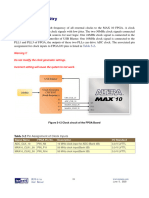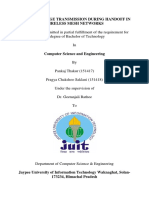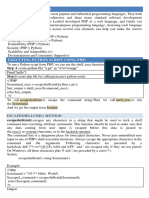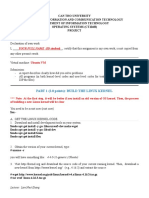0% found this document useful (0 votes)
296 views11 pagesCouchdb in Django
CouchDB can be leveraged in Django projects for certain use cases where its features provide benefits over the Django ORM. Specifically, CouchDB allows for quick retrieval of large datasets through its document-based structure and JSON format. It also enables convenient attachment of files to documents. At the company discussed, CouchDB was used to store prospective student applications as single documents with resumes, essays, and portfolios as attachments. CouchDBkit provides an API to integrate CouchDB with Django models and views, making it easy to work with CouchDB documents and leverage existing Django forms and functionality.
Uploaded by
Cezar JenkinsCopyright
© Attribution Non-Commercial (BY-NC)
We take content rights seriously. If you suspect this is your content, claim it here.
Available Formats
Download as PPT, PDF, TXT or read online on Scribd
0% found this document useful (0 votes)
296 views11 pagesCouchdb in Django
CouchDB can be leveraged in Django projects for certain use cases where its features provide benefits over the Django ORM. Specifically, CouchDB allows for quick retrieval of large datasets through its document-based structure and JSON format. It also enables convenient attachment of files to documents. At the company discussed, CouchDB was used to store prospective student applications as single documents with resumes, essays, and portfolios as attachments. CouchDBkit provides an API to integrate CouchDB with Django models and views, making it easy to work with CouchDB documents and leverage existing Django forms and functionality.
Uploaded by
Cezar JenkinsCopyright
© Attribution Non-Commercial (BY-NC)
We take content rights seriously. If you suspect this is your content, claim it here.
Available Formats
Download as PPT, PDF, TXT or read online on Scribd
/ 11














